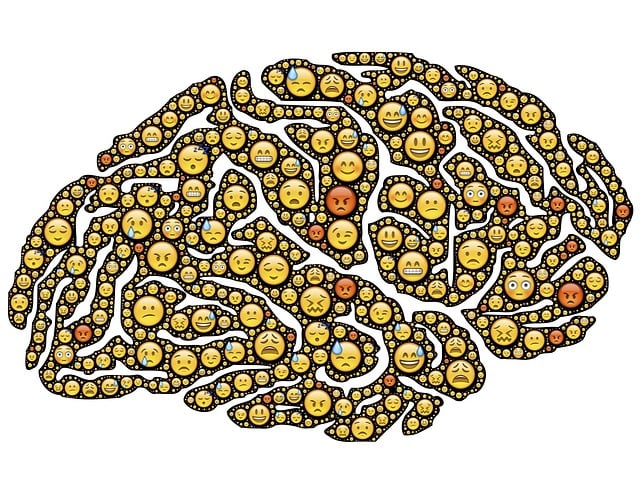Crisis Intervention Teams (CITs) are crucial in supporting young adults with mental health challenges, including self-harm and suicide risks. Bilingual therapy is a key component of effective CIT training, ensuring culturally sensitive care and improving accessibility to services for linguistically diverse youth. Well-structured Mental Health Education Programs empower individuals with coping strategies, preventing burnout and depression. Incorporating empathy-building and wellness journaling exercises tailored for a bilingual context strengthens connections and promotes emotionally responsive self-care routines. Bilingual crisis intervention is essential in diverse communities to ensure all young adults receive effective therapy and risk management planning, fostering inclusive well-being.
Crisis intervention teams play a crucial role in supporting young adults navigating mental health crises. This article explores the essential components of effective training programs, emphasizing the increasing need for bilingual expertise in crisis response. As youth struggle with rising mental health challenges, well-prepared teams can provide vital services. We delve into strategies for implementing and sustaining supportive crisis intervention services, ensuring that young adults receive the therapy they deserve, especially when language barriers are present.
- Understanding Crisis Intervention Teams: A Vital Resource for Young Adults
- The Importance of Bilingual Training in Crisis Response
- Key Components of Effective Crisis Intervention Team Training Programs
- Implementing and Sustaining Supportive Crisis Intervention Services for Youth
Understanding Crisis Intervention Teams: A Vital Resource for Young Adults

Crisis Intervention Teams (CITs) are a crucial resource designed to support young adults grappling with mental health challenges, particularly those at risk of self-harm or suicide. These specialized teams offer immediate and effective assistance, aiming to de-escalate crises while promoting long-term mental well-being. The role of CITs is vital in addressing the unique needs of young people, who often face heightened stress from academic pressures, social expectations, and personal struggles, potentially leading to burnout or depression.
Bilingual therapy for young adults forms a key component of effective CIT training programs. By providing support in their native language, therapists can foster better communication and understanding, ensuring that culturally sensitive needs are met. This approach not only enhances the accessibility of mental health services but also contributes to successful burnout prevention and depression prevention strategies within this demographic. Well-designed Mental Health Education Programs aim to equip young adults with coping mechanisms and resilience, empowering them to navigate crises and promoting overall mental health awareness.
The Importance of Bilingual Training in Crisis Response

In today’s diverse and interconnected world, effective crisis intervention requires a nuanced approach that recognizes and embraces cultural sensitivity. Bilingual training plays a pivotal role in equipping professionals to support young adults from various linguistic backgrounds during times of distress. By fostering the ability to communicate seamlessly in both languages, these programs ensure that individuals receive care tailored to their unique needs and cultural contexts. This is especially crucial when addressing mental health challenges, as language can significantly impact the way emotions are expressed and understood.
Crisis intervention teams trained in bilingual therapy have the advantage of building stronger connections with clients from different ethnic groups. They can offer coping skills development in a familiar linguistic environment, enhancing the effectiveness of interventions. Moreover, such training facilitates the promotion of emotional well-being through culturally responsive self-care routine development for better mental health. This holistic approach not only improves crisis response but also contributes to long-term positive outcomes for young adults navigating challenging situations.
Key Components of Effective Crisis Intervention Team Training Programs

Effective crisis intervention team training programs for young adults should incorporate several key components to ensure success and positive outcomes. Firstly, empathy building strategies are vital to fostering strong connections between team members and those in crisis. Training should emphasize active listening, non-judgmental attitudes, and cultural sensitivity, especially in a bilingual context, to create an inclusive environment that promotes open communication.
Additionally, integrating mental wellness journaling exercises guidance can significantly enhance participants’ ability to manage stress and promote positive thinking. These exercises encourage self-reflection, emotional awareness, and coping strategies tailored to individual needs. By combining these elements with practical crisis intervention skills, programs can empower young adults to navigate challenging situations while prioritizing their own mental wellness.
Implementing and Sustaining Supportive Crisis Intervention Services for Youth

Implementing supportive crisis intervention services for youth is a multifaceted process that requires comprehensive training and sustained support. Crisis intervention teams play a vital role in providing immediate assistance to young adults grappling with mental health crises, such as depression or mood disorders. Effective programs emphasize not only direct therapy for young adults but also equip mental health professionals with essential skills for risk management planning.
Bilingual crisis intervention services are particularly crucial in diverse communities, ensuring that all youth receive culturally sensitive and accessible support. By integrating these services into existing mental health frameworks, communities can foster a more inclusive environment where young adults feel comfortable seeking help. Sustaining these interventions involves ongoing training, regular monitoring, and continuous improvement based on best practices, ultimately enhancing the overall well-being of affected individuals.
Crisis intervention team (CIT) training programs play a pivotal role in equipping professionals with the skills to support young adults during crises. By understanding the unique challenges faced by this demographic, we can implement effective strategies that foster healing and recovery. The inclusion of bilingual training is essential, especially within diverse communities, ensuring accessible and culturally competent care for all. Through comprehensive CIT training, we empower individuals to navigate complex situations, ultimately enhancing the availability of therapeutic support for young adults in need, particularly those requiring bilingual services.














